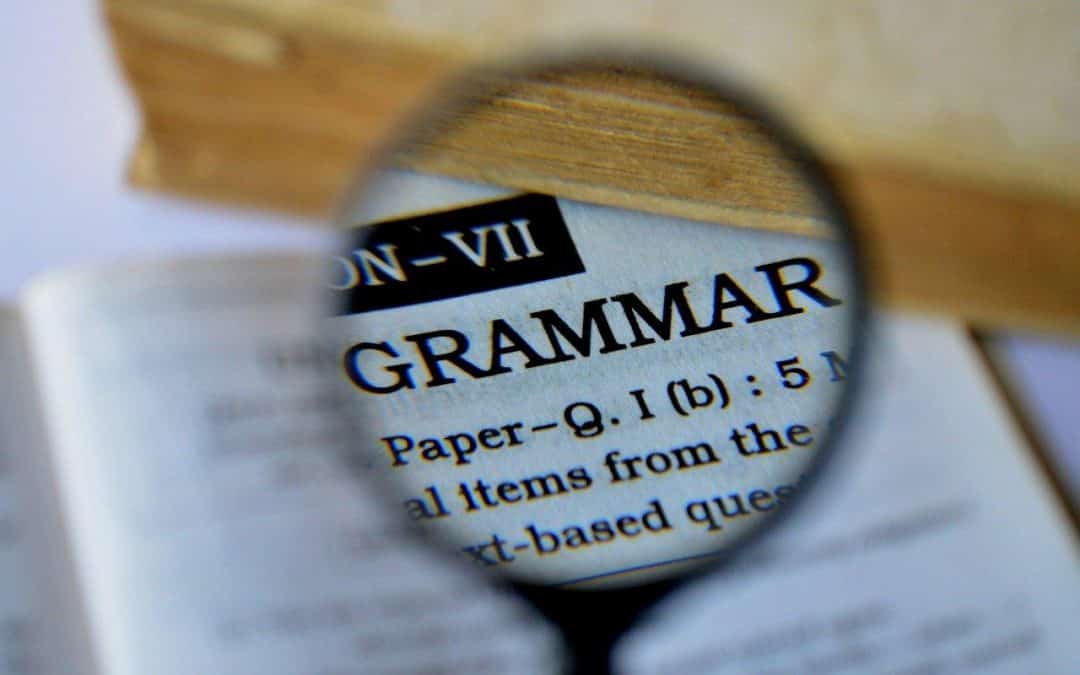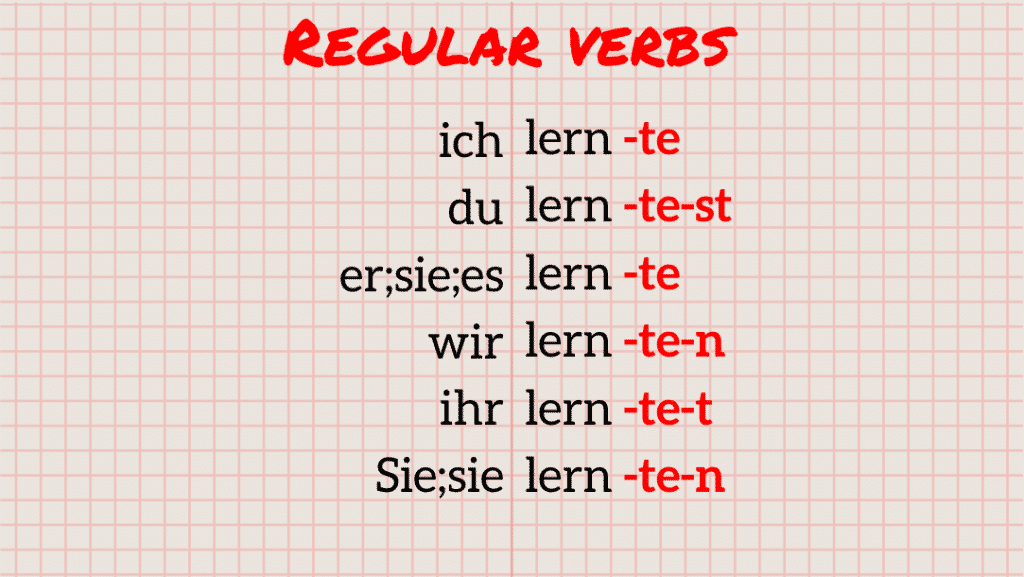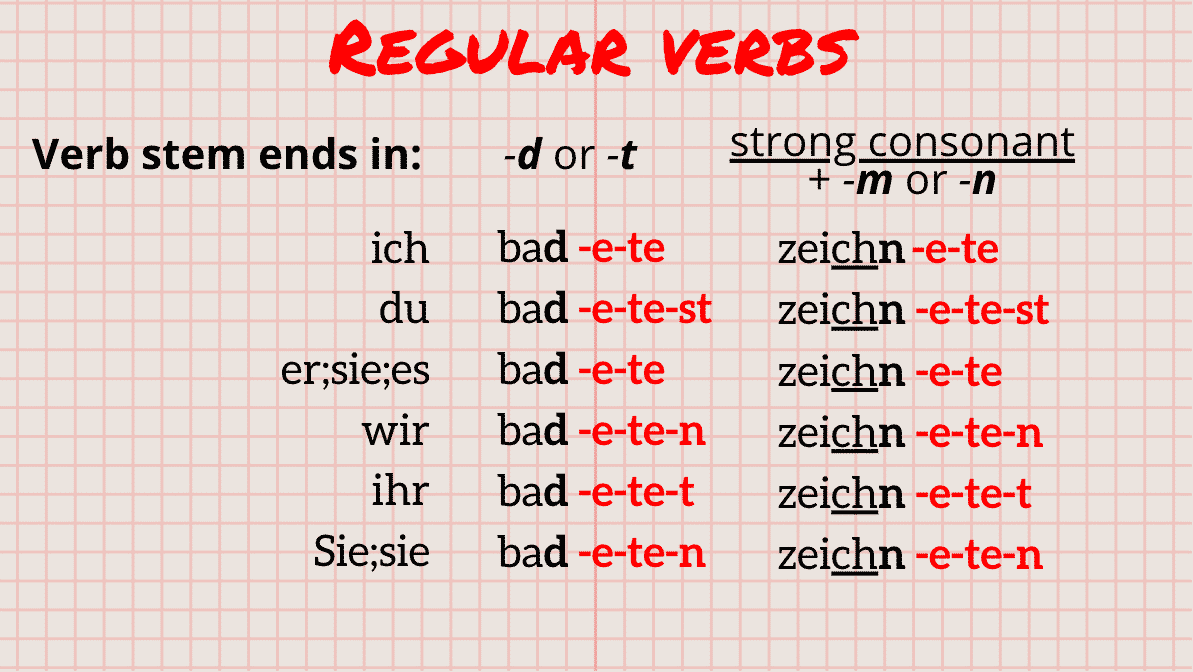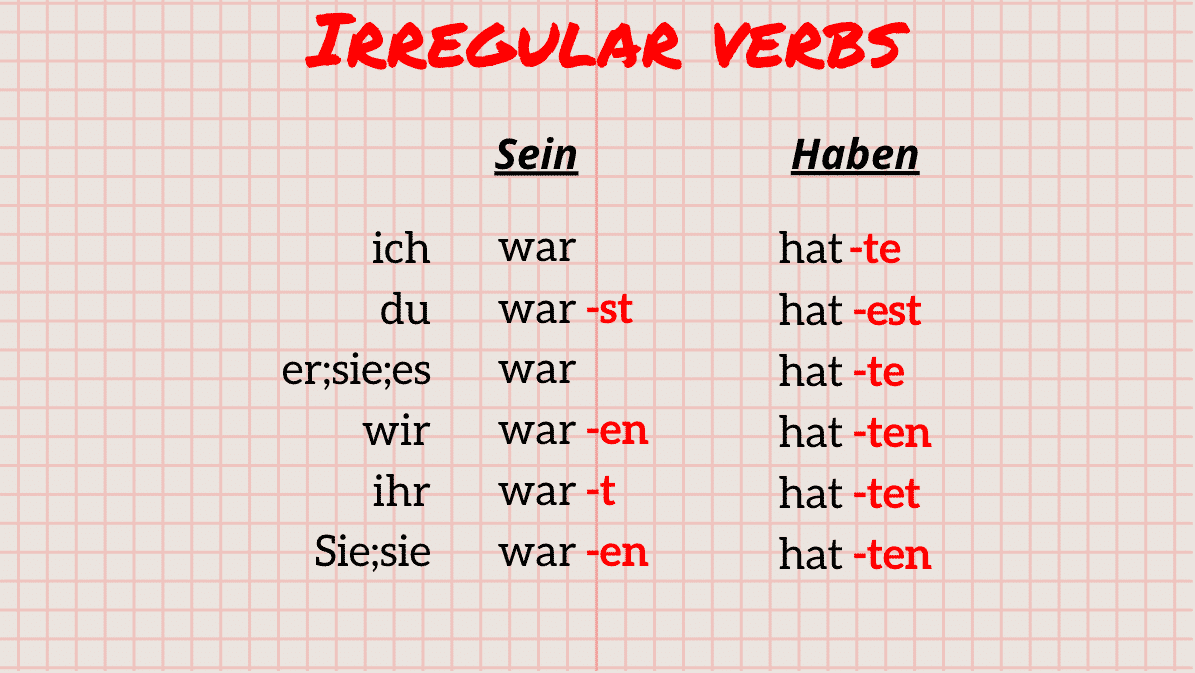Das Präteritum or Imperfekt is the German simple past or imperfect. When talking about the past in spoken German, it is more common to use the Perfekt than Präteritum. Though, there are some verbs and situations where you don’t have an option. Apart from those rules, it is important to note that the events you talk about should have started and ended in the past. Have a read of this ‘German Präterium Explained’ article to have a closer look at the conjugations! Perhaps, here you will find all the answers, and perhaps not.
Präteritum for regular verbs
The endings of most regular verbs in the German Präteritum look like those in the example below, marked in red. In order to form the simple past, you start with the stem of the verb (infinitive -en). After that, you can add the red endings just like in the following example:
Some verbs require an additional -e- between the stem and endings for pronunciation purposes. We don’t know why they insist being this way, it is just their nature. These verbs include verbs of which the stem ends in -d or -t, OR with a strong consonant followed by -m or -n. Examples of verbs with strong consonants are e.g. the -ch- in zeichnen, the -ck- in trocknen.
How about irregular verbs?
Yes, so what about the irregular verbs? Irregular or strong verbs of course have irregular conjugations in the German Präteritum. A full list can be found in this German irregular verbs chart.
The auxiliary verbs “sein” and “haben” are always but always conjugated in the Präteritum when talking about the past.
Modal Verbs
Furthermore, it is important that the same rule applies to the conjugation of modal verbs. What are the modal verbs? The modal verbs or Modalverben are können, müssen, sollen, dürfen, wollen, mögen. When you need a helping hand to bend the meaning of a verb, then you need to use a modal verb. They always require the Präteritum when talking about the past.
For example:
ich wollte
du wolltest
er/sie/es wollte
ihr wolltet
wir wollten
Sie/sie wollten
In order words, you would never say “ich habe gewollt” unless you are trying to achieve a dramatic effect, be funny, write poetry or insist on being particular. Well, every unusual thing has its place and some might accept it, but not Duden. When confronting a grammar freak, either be prepared to explain yourself or stick to the good old Präteritum.
As always, our best advice for you would be to expose yourself to the German language as much as possible, through listening to podcasts, watching movies or even better, attending classes which would bring you in direct touch with other people and you would have no chance but to speak German.
Having a difficult time in understanding how and when to use German Präteritum or any other grammatical structure? Why not booking a one-to-one online session with an experienced teacher? Check out our online German course offerings and get one step ahead in learning German.




